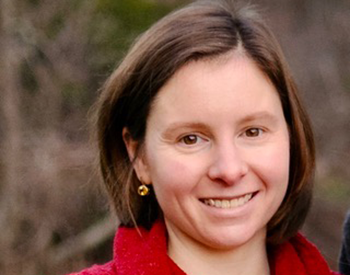We’re taking time over the following weeks to get to know the members of the GSA’s Early Career Scientist Committees. Join us every week to learn more about our early career scientist advocates.

Emily Lescak
Co-Chair Policy Subcommittee
University of Alaska Anchorage
Research Interest:
Given the importance of the microbiome to the health and development of the host, it is crucial to understand how its stability and response to disturbance are influenced by the host’s environment and genetic background. I use gnotobiotic techniques and antibiotic exposure experiments to test the effects of disruption to microbial communities on morphological and behavioral development. Results will increase our understanding of how a population’s response to microbial disturbance could be indicative of its resilience to environmental perturbations.
As a PhD-trained scientist, you have many career options. What career paths interest you the most?
My career goal is to engage in teaching and research at an academic institution where I can continue my commitment to training individuals from underrepresented groups in scientific research and professional development. I intend to use my role as a leader within the GSA to create and implement professional development opportunities that enhance mentoring and leadership skills for early career trainees. These skills have the ability to transcend the research setting, providing an opportunity to highlight the strengths of individuals with diverse life experiences.
In addition to your research, how else do you want to advance the scientific enterprise?
I advocate for integrating scientists’ unique backgrounds and experiences to connect with communities to promote scientific literacy, science-based decision-making, and the pursuit of STEM careers. Along with other members of my university’s postdoc association, I organize career and professional development opportunities for undergraduate & graduate students and postdocs on topics including the grad school application process, STEM career opportunities, scientific writing, and networking. Much of my outreach focuses on Alaska Native students; I mentor and teach students in the Alaska Native Science and Engineering Program. I also volunteer with programs focused on providing research experiences to high school students and promoting the importance of post-secondary education in the Anchorage School District. These outreach activities expose students to positive role models and provide the opportunity for them to gain confidence that they can pursue higher education and STEM careers.
As a leader within the Genetics Society of America, what do you hope to accomplish?
As a scientific community, we are increasingly recognizing that graduate students and postdocs need to develop versatile toolkits that can be applied to a variety of careers. I applied for a leadership position to help communicate which skills are needed for trainees to achieve success in their careers and to inform policies that promote career advancement and satisfaction.
I look forward to working with the policy committee to identify challenges facing early career researchers, gain a deeper understanding of how policy influences science, and acquire effective methods for scientific communication to a variety of audiences. With this information, I hope to inform policy that has potential to improve the quality of life for early career scientists and provide advocacy and professional development resources to trainees.
Previous Leadership Experience
- Organizer – University of Alaska Anchorage Postdoctoral Association
- Vice President of Education – Alaska Huts Association
- Student Representative – American Fisheries Society Alaska Chapter
- President – University of Alaska Anchorage’s American Fisheries Society Student Subunit
- Secretary – University of Alaska Anchorage’s Graduate Student Association































